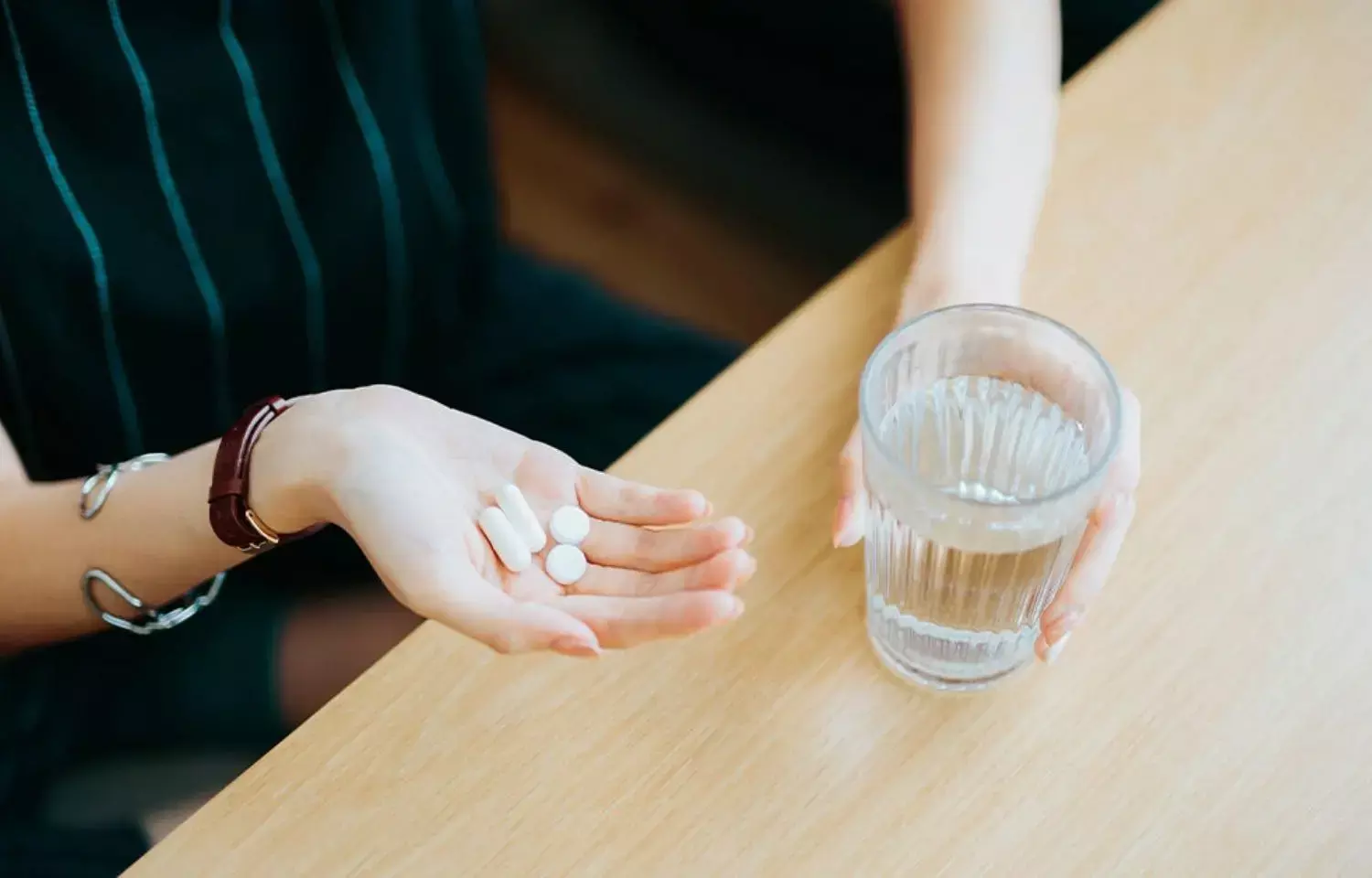- Home
- Medical news & Guidelines
- Anesthesiology
- Cardiology and CTVS
- Critical Care
- Dentistry
- Dermatology
- Diabetes and Endocrinology
- ENT
- Gastroenterology
- Medicine
- Nephrology
- Neurology
- Obstretics-Gynaecology
- Oncology
- Ophthalmology
- Orthopaedics
- Pediatrics-Neonatology
- Psychiatry
- Pulmonology
- Radiology
- Surgery
- Urology
- Laboratory Medicine
- Diet
- Nursing
- Paramedical
- Physiotherapy
- Health news
- Fact Check
- Bone Health Fact Check
- Brain Health Fact Check
- Cancer Related Fact Check
- Child Care Fact Check
- Dental and oral health fact check
- Diabetes and metabolic health fact check
- Diet and Nutrition Fact Check
- Eye and ENT Care Fact Check
- Fitness fact check
- Gut health fact check
- Heart health fact check
- Kidney health fact check
- Medical education fact check
- Men's health fact check
- Respiratory fact check
- Skin and hair care fact check
- Vaccine and Immunization fact check
- Women's health fact check
- AYUSH
- State News
- Andaman and Nicobar Islands
- Andhra Pradesh
- Arunachal Pradesh
- Assam
- Bihar
- Chandigarh
- Chattisgarh
- Dadra and Nagar Haveli
- Daman and Diu
- Delhi
- Goa
- Gujarat
- Haryana
- Himachal Pradesh
- Jammu & Kashmir
- Jharkhand
- Karnataka
- Kerala
- Ladakh
- Lakshadweep
- Madhya Pradesh
- Maharashtra
- Manipur
- Meghalaya
- Mizoram
- Nagaland
- Odisha
- Puducherry
- Punjab
- Rajasthan
- Sikkim
- Tamil Nadu
- Telangana
- Tripura
- Uttar Pradesh
- Uttrakhand
- West Bengal
- Medical Education
- Industry
R-Vera, a promising new antidiabetic medication? Study sheds light

Taiwan: In type 2 diabetes patients, the twice-daily addition of R-Vera to ongoing metformin therapy notably improved blood sugar patients, researchers state in a recent study in the Journal of Clinical Endocrinology & Metabolism. This implies that the favorable safety and efficacy profile of R-Vera 300 mg/day can be considered as a suitable dose for clinical practice.
There is a medical requirement for effective insulin-independent antidiabetic drugs in type 2 diabetes (T2DM) patients that have a low risk of hypoglycemia and promote pancreatic β-cell function, the researchers note. R-form verapamil (R-Vera) was shown to have the ability to enhance the survival of β-cells and has a higher margin of cardiovascular safety than verapamil. R-Vera was developed as a novel approach for the treatment of T2DM.
Against the above background, Wayne Huey-Herng Sheu, National Yang-Ming Chiao Tung University, Taipei, Taiwan, and colleagues designed a randomized, double-blind, placebo-controlled clinical trial to evaluate the safety and efficacy of 3 dosages of the addition of R-Vera in ongoing metformin therapy in T2DM patients having inadequate glycemic control on metformin alone.
For this purpose, the researchers randomly assigned the participants to receive an equal ratio of R-Vera 450, 300, or 150 mg per day, or a matching placebo, in combination with metformin. A change in hemoglobin A1c (HbA1c) after 12 weeks of treatment was the primary endpoint.
Based on the study, the researchers found the following:
- 184 eligible participants were randomized to receive either R-Vera or placebo plus metformin.
- At week 12, significant reductions in HbA1c were observed for R-Vera 300 mg/day and 450 mg/day compared with placebo.
- The reduction in HbA1c correlated with decreasing fasting plasma glucose levels and improved HOMA2-β score.
- Treatment with R-Vera was well tolerated with no hypoglycemic episodes occurring during the trial.
"Twice daily oral administration of R-Vera in addition to metformin significantly improved glycemic control in patients with type 2 diabetes by reducing FPG and HbA1c levels, and also helped in achieving the HbA1c goal of < 7.0% in a greater proportion of patients," the researchers wrote.
They further found the treatment with R-Vera to be well tolerated. They conclude that the favorable safety and efficacy profile of R-Vera 300 mg/day, combined with the potential for beta cell preservation and reduction in high blood pressure, make R-Vera a promising new antidiabetic medication.
Reference:
Chih-Yuan Wang, Kuo-Chin Huang, Chia-Wen Lu, Chih-Hsun Chu, Chien-Ning Huang, Harn-Shen Chen, I-Te Lee, Jung-Fu Chen, Ching-Chu Chen, Chung-Sen Chen, Chang-Hsun Hsieh, Kai-Jen Tien, Hung-Yu Chien, Yu-Yao Huang, Jui-Pao Hsu, Guang-Tzuu Shane, Ai-Ching Chang, Yen-Chieh Wu, Wayne Huey-Herng Sheu, A Randomized Controlled Trial of R-Form Verapamil Added to Ongoing Metformin Therapy in Patients with Type 2 Diabetes, The Journal of Clinical Endocrinology & Metabolism, 2022;, dgac436, https://doi.org/10.1210/clinem/dgac436
Dr Kamal Kant Kohli-MBBS, DTCD- a chest specialist with more than 30 years of practice and a flair for writing clinical articles, Dr Kamal Kant Kohli joined Medical Dialogues as a Chief Editor of Medical News. Besides writing articles, as an editor, he proofreads and verifies all the medical content published on Medical Dialogues including those coming from journals, studies,medical conferences,guidelines etc. Email: drkohli@medicaldialogues.in. Contact no. 011-43720751


